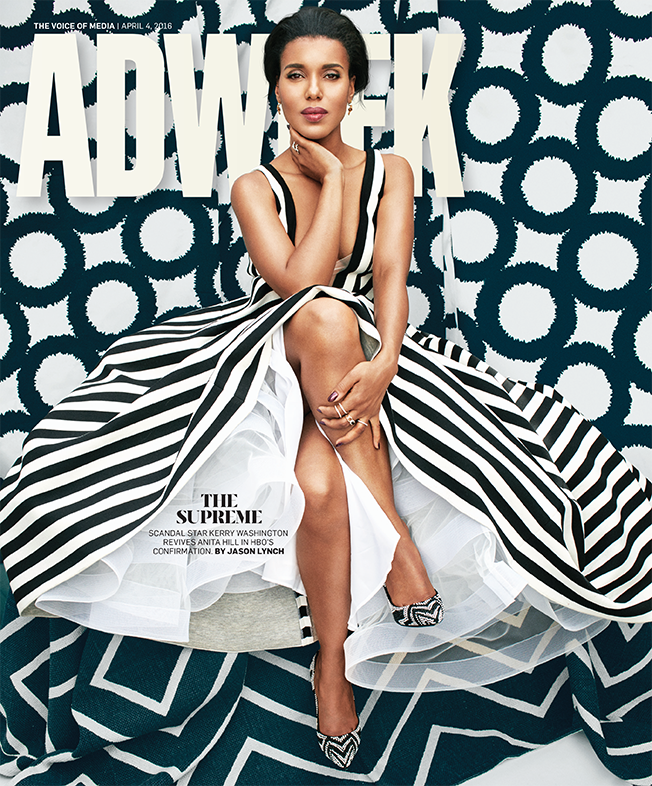
I think nobody can deny that 2016 has been a very good year for Black women in the editorial spectrum of landing magazine covers. While we’ve seen the gamut from Lupita to Viola Davis to Audra McDonald to even getting a plus-size edition for Women’s Month, there seems to be a constant undermining presence for Black representation if we look a certain way.

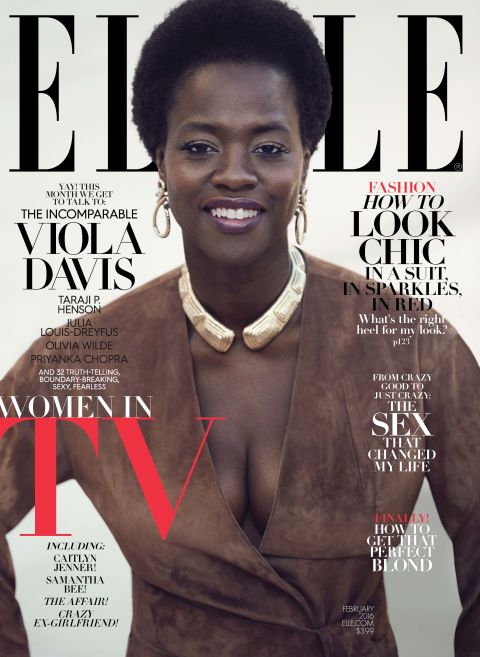 Should we still rejoice when we see a Black woman on the cover, but she’s been photoshopped to the max?
Should we still rejoice when we see a Black woman on the cover, but she’s been photoshopped to the max?
Case and point, the most recent photo of Kerry Washington for Adweek, where it is clearly evident that Kerry’s been changed, altered, and photoshopped.

Many of you took to Instagram, claiming that something was ‘off’ or that Kerry didn’t look like herself. Others expressed frustration in the constant demarcation of Black skin for magazine covers, or how the media enjoys us as long as our tones match a certain look or aesthetic.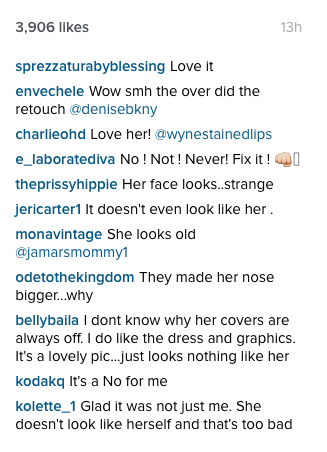 Not to mention this is not nearly the first time we’ve seen this before…
Not to mention this is not nearly the first time we’ve seen this before…
Or even in other magazine covers with notable stars…
However, despite debate that occurred on Instagram and Twitter, Adweek says it did not retouch Washington’s features or skin tone.
“We’ve seen some of the questions from readers and want to ensure them that the cover photo is an accurate representation of how Kerry Washington appeared on set with the lighting used in the photo shoot. We stand by that 100%,” said James Cooper, editorial director at Adweek, in an email. “This issue was addressed well before publishing and the editorial decision was to not alter her features or darken/or lighten any of her skins tones whatsoever.” Hmm…
Though we know that photoshopping happens every single day (and might just be an inevitability since we live in an image-driven world), the larger question, to me at least, is “Is this really sending a positive example to our next generation?” Yes, she may see a woman of color on the cover, but what message is it sending when she sees her skin has been lightened, hair has been groomed or that her nose has been over contoured for her to be on this cover? It may not be all the time, but the fact this even continues to happen begs the discussion. Plus, Kerry Washington is beautiful untouched, so, why not keep her (and all women of color) that way?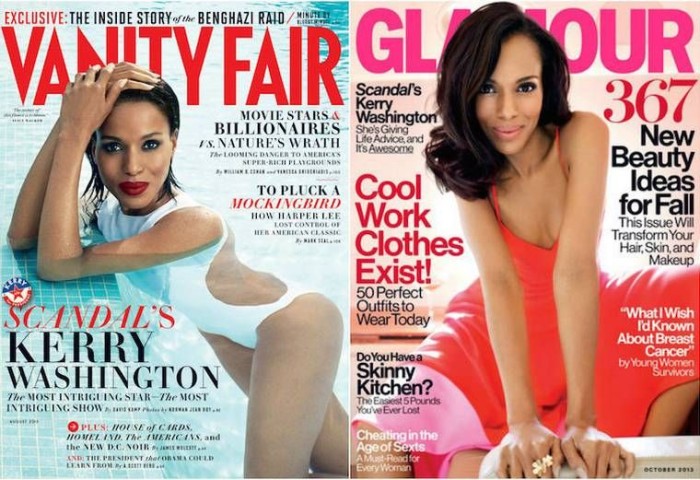
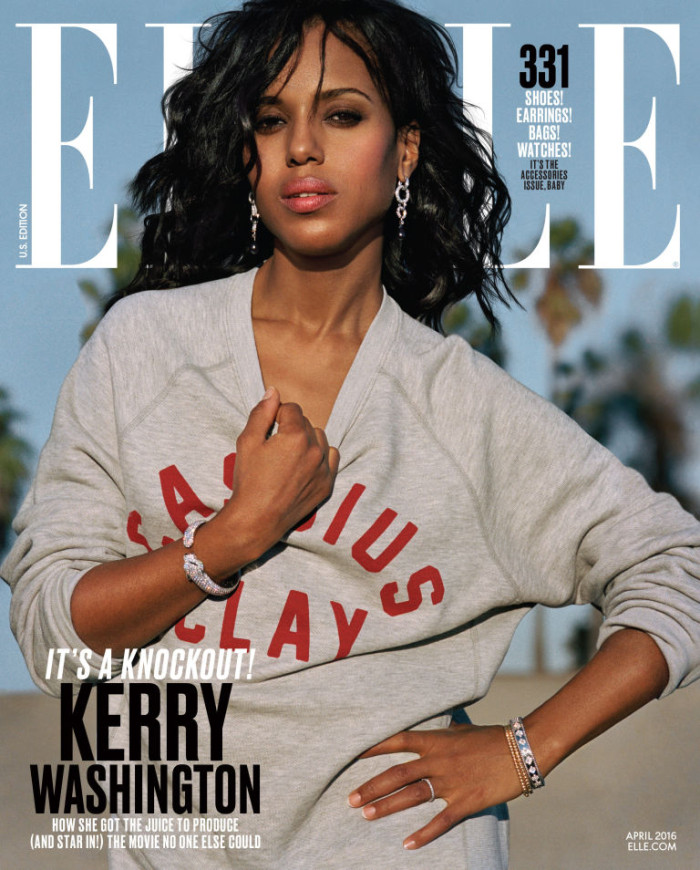
Are we being too sensitive and should just celebrate the victories of landing magazine covers, endorsements, and prestige? Or does the community need to speak up and demand that photos be non-altered (or less altered) to reflect the true natural beauty of our people? Is the changing of our skin a clear reflection of society’s distortion or omission of black beauty? Does any of the responsibility lie within the celebrity at hand?
Since the publication of this article, Kerry Washington has taken to her Instagram, where she does make a statement on the alterations that were made (in more ways than one!). Check it out: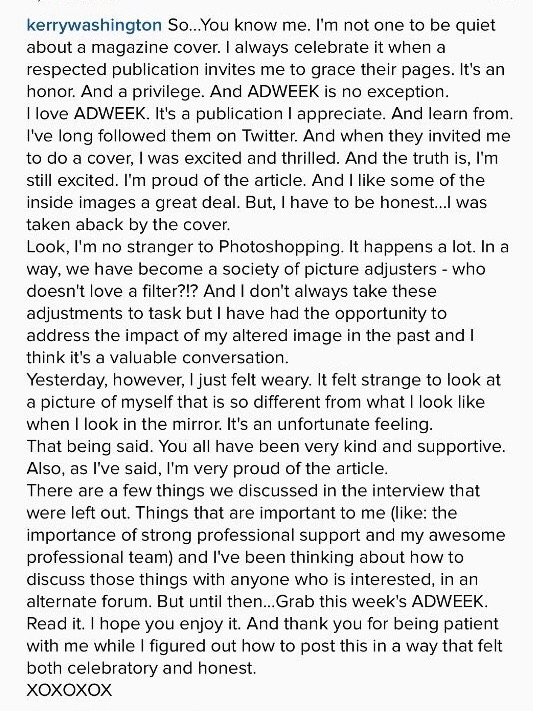
Thoughts?


